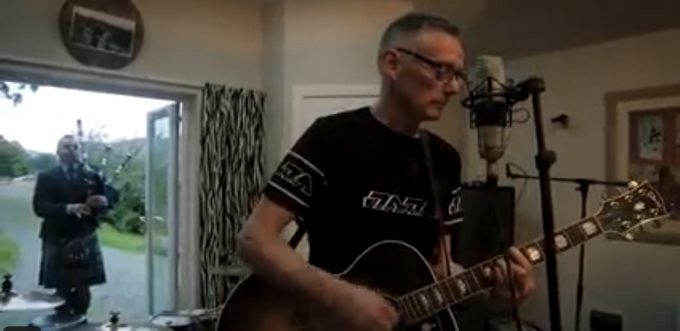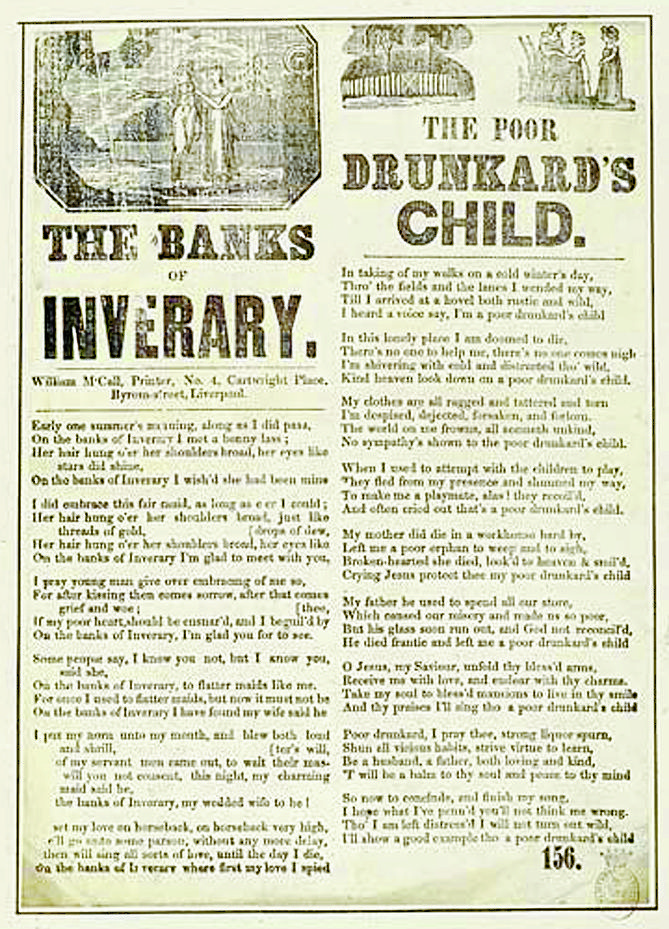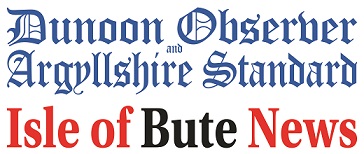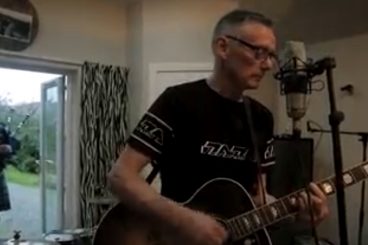
An Inveraray musician has recorded a new track featuring Pipe Major Stuart Liddell MBE – but is keen to find out who wrote the melody.
Craig MacIntyre, frontman of well-known Argyll band The Camans, takes up the story.
He says: “It was around the start of the pandemic when I stumbled upon the sheet music and lyrics for a song called ‘The banks of Inverary’ (sic) online.
“I asked around the town if anyone had heard of the song and, like myself, no one had.
I decided to do a bit of digging to see if I could find out who wrote the song and when it was written, again I drew a blank.
“So what I had was the sheet music and lyrics of a song about our home town with no composer, no composition date – and no-one in the town who knew about the song.”
Craig thought about recording the song, and began familiarising himself with it before working on an arrangement.
He said: “When I played the tune and sang the song it was apparent it was a mid to early 19th century love ballad and although pleasant to the ear it needed a definite 21st century makeover if it was to appeal to a wider audience.
“To this end myself and band members, past and present, together with other local musicians set about rearranging the song for the modern era without losing it’s traditional roots and romantic element.”
Craig added: “it was an amazing journey over the last couple of years, particularly collaborating with Dan Brown remotely and Stuart Liddell in person.
“Hopefully, in time, our rendition of the song and amazing video will help to bring our home town a bit closer to the rest of the world.”
So where does the song come from?
We have found a little about the origin of the lyric – but have drawn a blank on the composer of the melody – and we hope some of our musical readers can help.
‘The Banks of Inverary’ lyric was published as a ‘Broadside Ballad’ by Liverpool printer William McCall between 1857 and 1877.
There are some obscure references to the song appearing on an 1830s broadsheet published by printer Thomas Ford of Chesterfield, but no copies appear to be in existence.
Broadsides, or broadsheets, were produced by printers for a particular market, often very local, as a popular – and cheap – form of entertainment.
‘The Banks of Inverary’ was published alongside a moral ditty ‘The Poor Drunkard’s Child’.
To increase sales in the north east of Scotland the song title was changed to ‘The Banks of Inverury’. But which came first, and where did the Liverpudlian printer get the song?
Aberdeenshire
Aberdeenshire singer Iona Fyfe has recorded the North East version.
She says of the song: “I first heard this song from fellow Huntly singer, Shona Donaldson, when she was a guest at Cullerlie Traditional Singing Weekend in 2016.
“Shona attributed it to the singing of Gordon Easton who, at 84 years old, recorded it on his Springthyme album, The Last of the Clydesdales.
“It was also sung by Jock Duncan who recorded it on his 1996 album Ye Shine Whar Ye Stan! Jock learnt it from itinerant farm worker Jimmy McBeath in 1971.
“A song of rejection, the Banks of Inverurie, echoes’ the form and structure of the American folksong, The Lakes of Pontchartrain.
“The origins of the song remain unknown, but it is thought that it originated in Scotland and was brought to America by soldiers fighting for the British army in Louisiana and Canada in 1812. It could be argued that Aberdeenshire is the source region of the localised song, by its inclusion in Greig-Duncan [a 1925 collection of traditional Aberdeenshire ballads] and the song being set on the banks of the River Ury.
“It is also printed in two Broadside forms: The Banks of Inverury and The Banks of Inverary. “The prints are the same, with the place name the only difference.
“Until half way through the 19th century, Inverurie was spelt as Inverury.
“One version of the broadside uses the historical spelling of Inverury, which proves that the song existed before 1866, when the town clerk made the spelling change to Inverurie official, after post (and songs) got mixed up between Inverury and Inveraray, in Argyll.”

YouTube
The printed melody is a relatively simple one – and if any of our musical readers know it be a different name please let us know – and solve the mystery of who wrote it, and when.
It follows the form of early English folksong and ballad.

Meanwhile, Craig’s arrangement can be heard on all the popular streaming channels.
To hear Craig’s version – using the modern spelling of Inveraray – and see his amazing video, click HERE.






